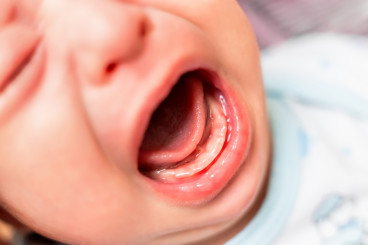Alloplastic
Alloplastic is a term used in dentistry to describe a type of dental treatment or material that involves the use of artificial or synthetic substances. This approach is often employed when natural or biological materials are not suitable or available for a particular dental procedure.
Alloplastic in Dental Context
In the field of dentistry, alloplastic materials are typically used as substitutes for missing or damaged natural tissues, such as teeth, bone, or other oral structures. These synthetic materials are engineered to mimic the physical, chemical, and even biological properties of the natural structures they are meant to replace.
Reconstruction
One of the primary applications of alloplastic materials in dentistry is in the area of bone grafting and reconstruction. When a patient has experienced significant bone loss in the jaw, often due to periodontal disease, trauma, or tooth loss, alloplastic bone graft materials can be used to restore the lost bone volume and provide a stable foundation for dental implants or other restorative treatments.
Alloplastic Materials: Shapes, Forms & Types
These alloplastic bone graft materials come in various forms, such as powders, granules, or solid blocks, and are typically made from synthetic materials like calcium phosphate, hydroxyapatite, or bioactive glasses. These materials are designed to be biocompatible, meaning they can be safely integrated into the body without causing adverse reactions or rejections.
Another common use of alloplastic materials in dentistry is in the fabrication of dental implants. Dental implants are artificial tooth roots that are surgically placed into the jawbone to support a dental restoration, such as a crown, bridge, or denture. The implant itself is typically made from titanium or other biocompatible metals, which are then coated or combined with other alloplastic materials to enhance their integration with the surrounding bone.
A Solution for Missing Teeth
In addition to bone grafting and dental implants, alloplastic materials may also be used in the restoration of missing or damaged teeth. Composite resins, for example, are a type of alloplastic material that can be used to fill cavities, repair chipped or cracked teeth, or even create entire tooth crowns. These resins are made from a mixture of plastic and glass or ceramic particles, and are designed to mimic the appearance and function of natural tooth structure.
The use of alloplastic materials in dentistry offers several advantages over the use of natural or biological materials. Firstly, they can be tailored to meet the specific needs of the patient, allowing for a more customized and personalized approach to treatment. Additionally, alloplastic materials are often more durable and long-lasting than their natural counterparts, reducing the need for frequent replacements or repairs.
However, it is important to note that the use of alloplastic materials in dentistry is not without its challenges. Some patients may experience allergic reactions or other adverse reactions to the synthetic materials, and there is always a risk of the materials failing or becoming dislodged over time. As with any dental treatment, it is essential that patients work closely with their dentists to ensure that the use of alloplastic materials is appropriate and safe for their individual needs.
Conclusion
Overall, alloplastic materials play a crucial role in modern dentistry, providing clinicians with a wide range of options for restoring and replacing damaged or missing oral structures. By understanding the properties and applications of these synthetic materials, patients can make informed decisions about their dental care and work with their dentists to achieve the best possible outcomes.
Explore your dental treatment options with Dr. BestPrice today!



